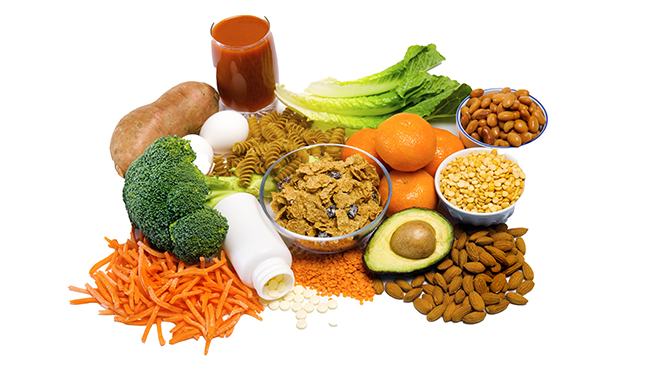Mood disorders, anxiety and depression are very common today and surprisingly one of the root causes for it is nutritional deficiencies. Read below to know how improper nutrition can impact your mental health.
Ever experienced a strange unexplained moodiness and sadness? Or noticed a sudden lack of energy and drop in motivation?
Well, you may not be in need of any mood-uplifting antidepressants, rather it could be that you are missing out on some essential nutrients. One can’t refute the fact that food plays a crucial role when it comes to our mental health, yet far too often we overlook the importance of proper nutrition in favour of quick, convenient meals that offer little in the way of nutritional value. From Omega-3 fatty acids to iron, a lack of certain vitamins and minerals can alleviate symptoms of anxiety, depression, and other mental health concerns. Hence, taking the time out to identify and address our nutritional deficiencies can be an important step towards improving our mental health and overall well-being.
Here's a look at some of the important nutritional deficiencies that could be impacting your mental health and mood.
Omega-3 Fatty Acids

Omega-3 fatty acids are a type of polyunsaturated fatty acids, which are known to reduce inflammation and play a crucial role in proper brain functioning. Studies have shown that dietary deficiencies of omega-3 fatty acids can not only cause anxiety but also increase the risk of developing various psychiatric disorders, including depression, bipolar disorder, schizophrenia, dementia, attention-deficit/hyperactivity disorder, and autism. So, what’s the best way to ensure that you don’t fall short on this essential mineral? Well, load your plates with fatty fish like Salmon, mackerel, herring and sardines whenever possible. Vegetarians don't need to stress, as these healthy fats can be found in walnuts, flaxseed and chia seeds as well.
Iron

The role of iron in our physical health is well established, however, its role in our mental health is increasingly becoming evident now. While iron is needed for the production of red blood cells and regulating oxygen transport around the body and to the brain, it also helps to create feel-good hormones like serotonin and dopamine. An iron deficiency can lead to symptoms similar to depression, and extremely low energy levels. Hence it is important to keep your iron levels up-to-date. And what better way to do that than by consuming more iron-rich foods such as spinach, pumpkin seeds and tofu. It’s important to note that iron from plant-based foods is not as easily absorbed as that found in meat, so vegans and vegetarians may need to take a supplement. However, do consult your doctor before starting any supplements.
Folate

Folate is a B vitamin that is needed for the production of neurotransmitters, the chemicals in the brain, which play a vital role in regulating our mood and energy levels. Then obviously a folate deficiency can affect your mental health and mood and increase the risk of depression and anxiety. Again food is the key to maintaining proper folate levels in the body. Folate is found in foods such as spinach, broccoli, asparagus, avocado, and eggs. A lot of the foods that contain folate are also high in saturated fat. This means that people who are on a low-fat diet may have to take an extra supplement.
Vitamin B12

Vitamin B12 is renowned for providing some incredible health benefits, including maintaining a healthy nervous system. A deficiency of Vitamin B12 can cause neurological and psychiatric problems, which can further lead to irritability, changes in personality, depression, and memory loss. Low levels of Vitamin B12 can also worsen depression and anxiety issues. Vitamin B12 is found in foods such as salmon, liver, eggs, and fortified cereals. Vitamin B12 is not absorbed as well from plant-based foods, which means that vegans and vegetarians may need to supplement with a higher dose.
Zinc
If you are facing strange and sudden mood swings, chances are you have a Zinc deficiency. Zinc is a mineral, which is crucial for our immune system and the health of our nervous system. Clinical studies have found that patients suffering from depression have low zinc levels and low levels of this mineral are one of the primary causes of clinical depression. Low zinc levels can also lead to irritability, emotional instability, and induced deficits in social behaviour. The best way to give a boost to zinc levels in our body is by ensuring that we consume zinc-rich foods like oysters, pumpkin seeds, almonds, and spinach. Zinc supplements are also available in pharmacies, however, like any other supplements, it is recommended to consult your doctor before starting any supplements.
Magnesium
Magnesium deficiency can be a big problem as it is an essential mineral, which is needed for many bodily functions including our mental health. Magnesium is important for the formation of neurotransmitters, which impact our mood and mental health. It’s also needed for the production of energy and the regulation of blood sugar. A magnesium deficiency can lead to feelings of fatigue, as well as feelings of anxiety and depression. Almonds, spinach, and avocado are good sources of magnesium, which should be included in our diet regularly.
Vitamin D

Vitamin D is responsible for the production of adrenaline, noradrenaline, and dopamine, it also aids hormonal balance, hence it plays a vital role in the regulation of our moods, immune system and nervous system. Vitamin D deficiency is linked with depression, mild Alzheimer’s, altered sleep patterns, mood issues, and fatigue. While sunlight is the primary source of vitamin D for our body, vitamin D is also found in a small number of foods such as egg yolk, fatty fish, red meat and mushrooms.
Iodine
Iodine is a mineral that is needed for healthy mental and physical development. An iodine deficiency can lead to an increase in mood disorders such as depression and anxiety. It’s also important for the proper functioning of the thyroid gland, which can lead to a decreased metabolism and low energy levels. You can get iodine by using an iodine-enriched salt or by eating foods such as fish, dried seaweed, eggs, shrimp, and dairy products.
Calcium
Since we were kids, we have heard that calcium is essential for healthy bones and teeth. But apart from being a vital nutrient for our bone health, calcium levels in our body also have a major impact on our mental health. Calcium deficiency can often lead to feelings of anxiety and depression as well as an increased risk of mood disorders. Calcium is found in foods such as dairy products and broccoli.
Disclaimer: Talk to your doctor before taking any supplements, especially if you are on prescription drugs.






